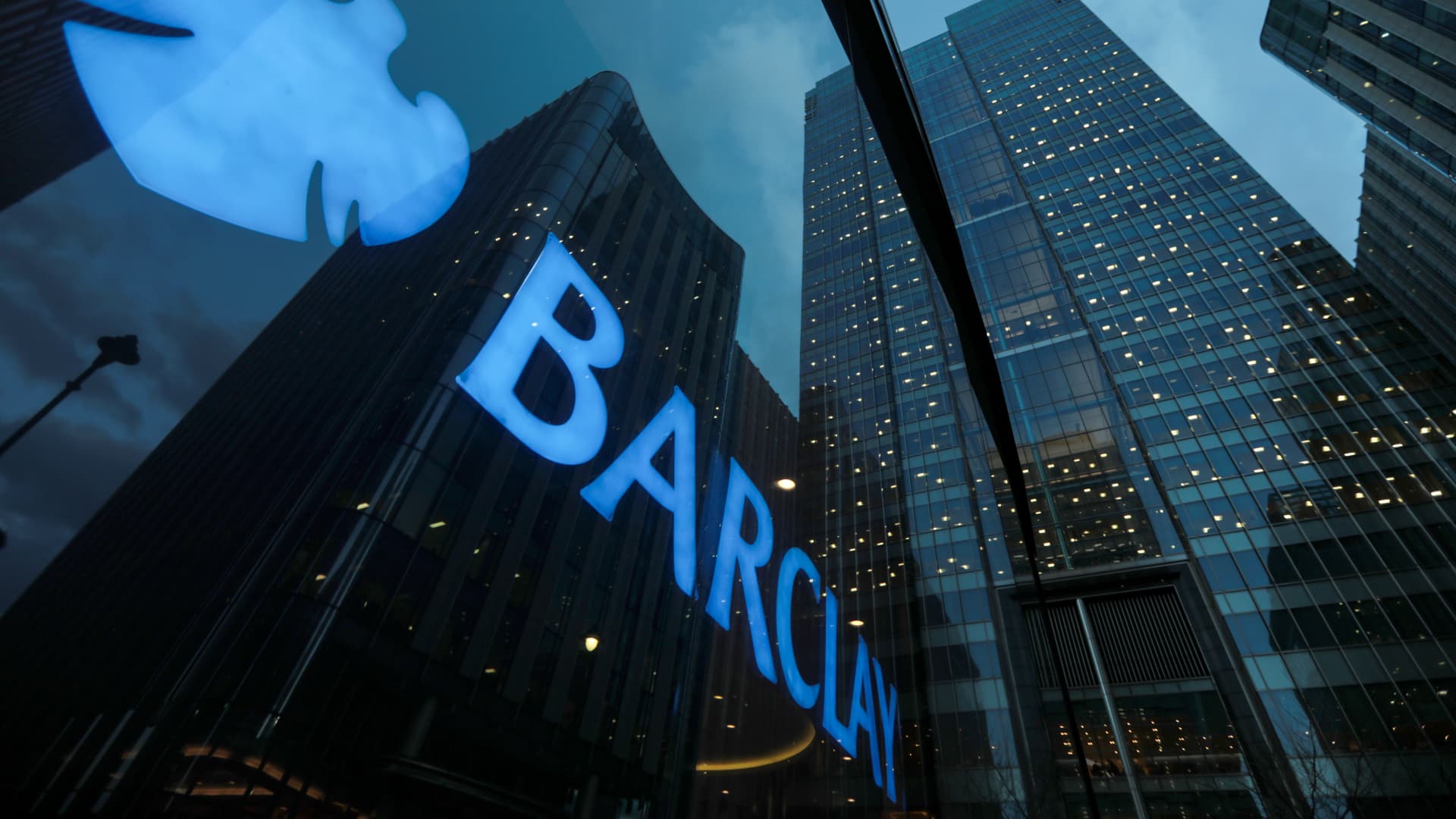LONDON — Shares of Barclays rose 4% on Thursday after the bank reported first-quarter net income attributable to shareholders of £1.55 billion ($1.93 billion), beating expectations and returning the British lender to profit amid a major strategic overhaul.
Analysts polled by Reuters had expected net profit attributable to shareholders of £1.29 billion for the quarter, according to LSEG data.
The bank’s shares were up 4.1% by 9:50 a.m. London time.
Pre-tax profits, however, were down 12% to £2.28 billion from $2.6 billion a year earlier, as the bank braces to implement its extensive revamp plans.
Here are some other highlights:
- First-quarter group revenue was £6.95 billion, down 4% from the same period last year.
- Credit impairment charges were £513 million, compared with £524 million in the first quarter of 2023.
- Common equity tier one (CET1) capital ratio, a measure of bank’s financial strength was 13.5%, down from 13.8% in the previous quarter.
- Full-year return on tangible equity (RoTE) was 12.3%.
- Quarterly total operating expenses were up 2% year-on-year at £4.2 billion.
Barclays reported a net loss of £111 million in the fourth quarter of 2023 due to an operational shake-up designed to reduce costs and improve efficiencies.
CEO C.S. Venkatakrishnan said the bank’s first-quarter results showed it was committed to implementing its overhaul plans, including via further investment in its U.K. consumer business and through its acquisition of Tesco Bank, which expected to complete in the fourth quarter of this year.
“We are focused on disciplined execution of the plan that we presented at our Investor Update on 20th February,” he said in a statement.
The revamp plans included a £900 million hit due to structural cost-cutting measures, which the bank said were expected to lead to gross cost savings of around £500 million in 2024, with an expected payback period of less than two years.
The overhaul saw the reorganization of the business into five operating divisions, separating the corporate and investment bank to form: Barclays U.K., Barclays U.K. Corporate Bank, Barclays Private Bank and Wealth Management, Barclays Investment Bank and Barclays U.S. Consumer Bank.
The bank also pledged to return £10 billion to shareholders between 2024 and 2026 through dividends and share buybacks.
Will Howlett, financials analyst at Quilter Cheviot, said in a Thursday note that the first-quarter results were a “promising start,” indicating that the bank is adhering to the financial roadmap outlined in its 2023 full-year results.
“With a solid start to the year, Barclays is poised to reshape its valuation narrative and deliver on its promises to shareholders,” Howlett said.
“The reiteration of profitability targets, aiming for a return on tangible equity (RoTE) of over 10% in 2024 and over 12% in 2026, reflects a consistency in Barclays’ ambitions despite previous setbacks.”
— CNBC’s Elliot Smith contributed to this report.

 Blog Post1 week ago
Blog Post1 week ago
 Economics1 week ago
Economics1 week ago
 Finance1 week ago
Finance1 week ago
 Personal Finance1 week ago
Personal Finance1 week ago
 Accounting1 week ago
Accounting1 week ago
 Economics1 week ago
Economics1 week ago
 Personal Finance6 days ago
Personal Finance6 days ago
 Personal Finance1 week ago
Personal Finance1 week ago









